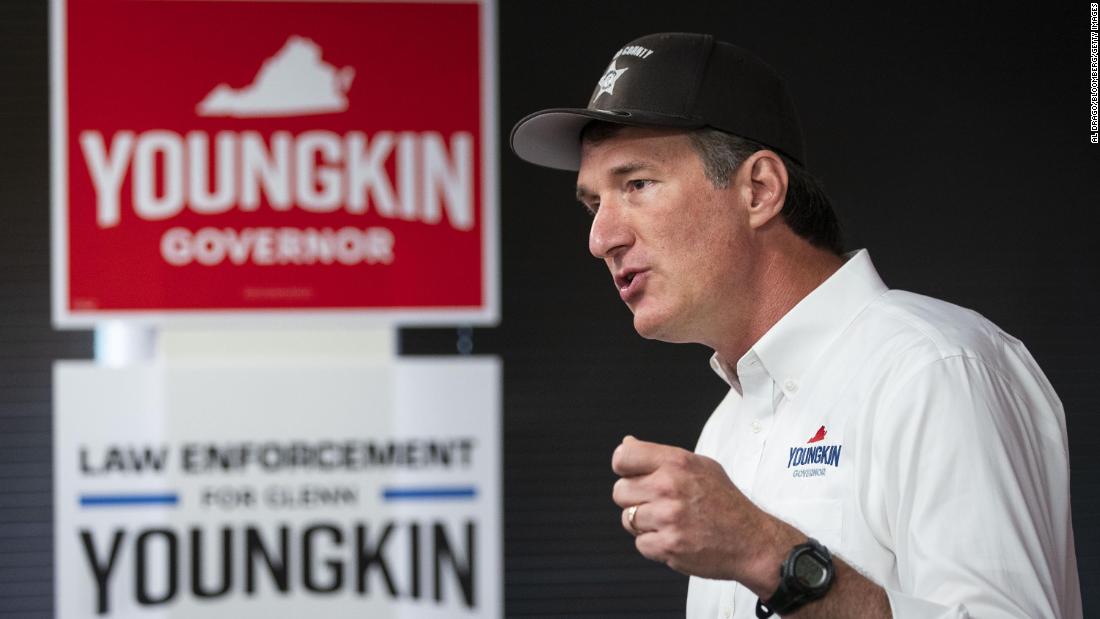Analysis: This Republican candidate just got caught between Trump and a hard place
“She’s carrying an American flag that was carried at the peaceful rally with Donald J. Trump on January 6,” said Martha Boneta, the emcee of the event, of a woman who stepped onstage with the flag.
The rally, which was headlined by former Trump White House political adviser Steve Bannon, was designed to support the entire Republican ticket in Virginia — which Youngkin is leading. Youngkin was not in attendance, although the former President called in to praise the GOP nominee as a “great gentleman, truly successful.”
The rally — and the decision to say the Pledge of Allegiance to a flag carried at a rally that had led to the first invasion of the US Capitol since the British burned it in the early 19th century — speaks to the fundamental contradiction that sits at the heart of Youngkin’s campaign: He must not alienate the Trumpist base, while at the same time creating enough distance from the controversial former President to appeal to independents and loosely affiliated Democrats.
This rally — and the pledge — took a divide that Youngkin had been doing everything to downplay and put it front and center in the race.
Youngkin, sensing danger, sought to emphasize Thursday that he had not been at the rally. “I wasn’t involved and so I don’t know, but if that is the case, then we shouldn’t pledge allegiance to that flag,” he said of the January 6 flag incident. “And oh, by the way, I have been so clear: There is no place for violence, none, none, in America today.”
How he handles it — or doesn’t — will be a telling window into whether (and how) Republicans trying to win in swing states and districts can manage to be a servant of two masters: Trump and the independent voters turned off by the former President.
![]()


